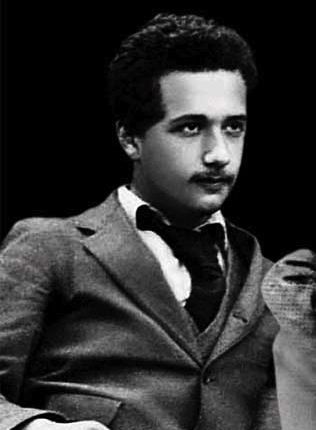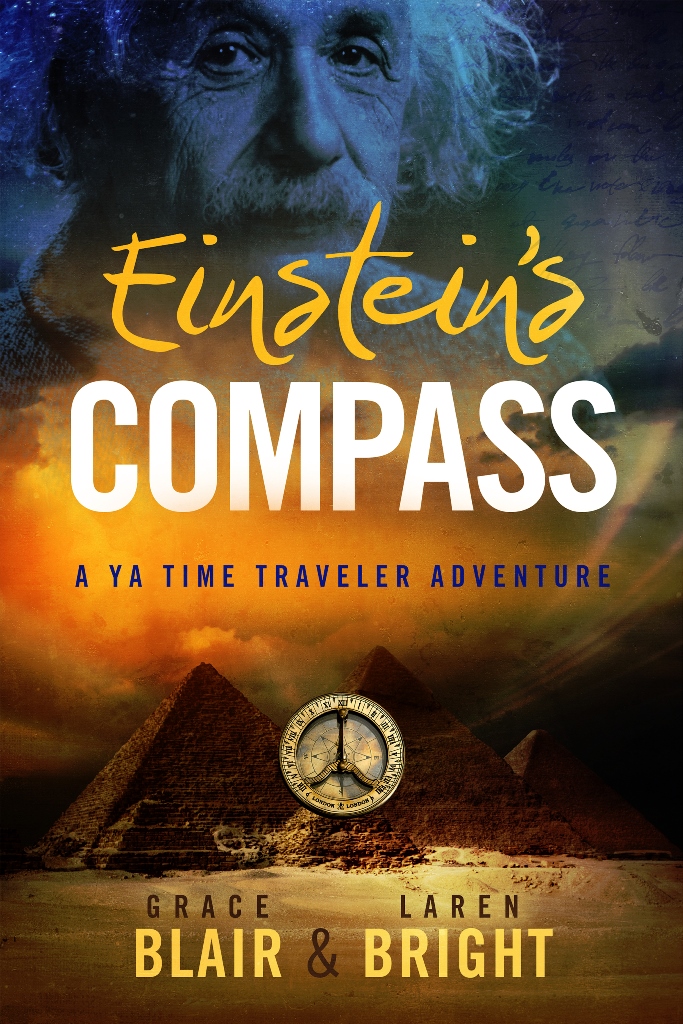
One of the reasons I wrote Einstein’s Compass was to share with people ways in which they could learn how to be more creative in their lives. A truth I learned about Albert Einstein was when he attended Aarau High School in Switzerland his teacher instructed Albert and his fellow students on how to increase their personal power of thought and imagination through thought experiments. I believe that through his thought experiments Einstein intuitively received his theories that changed the world. I wanted this chapter in particular to give anyone reading possibilities of what can be accomplished through surrendering into a higher awareness. I followed similar practices to write Einstein’s Compass.
Spring 1895
Thought Experiment
Six male students in their mid-teens dressed in wool suits, starched white shirts, and blue-and-yellow neckties sat two by two in a single row, anxiously awaiting the start of class. Albert had enrolled in Aarau High School after his unsuccessful attempt to enter the Polytechnic. Of course, he had passed the math and science section of the exam with flying colors. Yet the test showed Albert needed more study in languages, biology, literature, political science, and botany. While somewhat disappointed with the test results, he saw it would only take a year at Aarau before he could get to the Polytechnic, and he was okay with that.
The smell of fresh white chalk stimulated Albert’s mind. He focused on the three Hs the headmaster, Professor Winteler, wrote on the blackboard; the principles of teaching the school followed.
Heart – to explore what students want to learn. To develop their moral qualities, such as helping others.
Head – to understand objects, concepts, and experiences.
Hand – to learn the craft of doing good work and develop their physical skills.
Completing his writing with a flourish, the teacher turned to face his class. His brown eyes twinkled, and there was genuine warmth and enthusiasm in his voice as he said, “I have found that people learn more easily accessing their intuition, their inner powers than they do through their minds.”
In the front row, Albert relaxed. For the first time in his school life, the reject from the Gymnasium in Germany felt connected.
The wise professor put down the chalk and rubbed his hands together. He adjusted his spectacles and said, “Our first exercise will be a thought experiment. It will assist us when we want to consider a hypothesis or theory when the purpose is to think through by steps to its consequences. This practice will increase your personal power of thought and imagination. What’s more,” he said with a smile, “by going inward, you begin to trust yourself.”
A sandy-haired student raised his hand, and the professor acknowledged him. “Yes, Gregory, you have a question?”
“I do, sir,” the boy said as he stood.
The professor smiled. “Good. Questions are encouraged. What do you have?”
“In this mind experiment, do we have our eyes open or closed?”
“For the purposes of our first experiment, you will have your eyes closed. Though I am sure sometimes during the day, you find yourself in a daydream where your mind is drifting in space even with your eyes open.” Gregory nodded as the professor continued. “We are going to use a what-if, dreamy kind of imagination to allow you to let go and create possibilities.”
As Gregory sat down, the professor instructed, “Now I want you to remove your jackets, loosen your ties, and sit up straight with your arms and legs uncrossed. Place your hands on your thighs, palms up.”
The students did so and waited for the next direction.
“Close your eyes and take a slow, deep breath,” Winteler said. “Inhale, then slowly let go of all the air in your lungs.” He paused for a few seconds. “Again, this time breathe in more slowly.” As the students did this, he paused, then said, “Hold the air inside.” He paused again. “Let go of all the air, slowly. Allow your body to relax. Keep your eyes closed and focus on your breath going in and out. If your mind starts to chatter, just acknowledge that then bring your focus back to your breathing.”
Albert sat with his back straight though he was relaxed, surrendering his mind. Lost in the experience, the dreamer did not even hear what the teacher said next because he found himself enveloped in a warm glow, and he felt like he was rising above the Earth. A motion caught his awareness, and he glanced to the side. Next to him flew a graceful, towering, luminous being with flowing, golden hair. Somehow, Albert sensed it was an angel. The angel’s violet eyes gave the dreamer a loving smile, and Albert surrendered more fully to his experience. Archangel Michael offered Albert his hand, and Albert gently grasped it. The sound of angels singing “Glory to God in the highest” rang out over the universe.
The veil of time opened, and Albert found himself floating down onto the emerald-green grass in the Garden of Remembrance. As he attempted to take it all in, Albert saw a figure standing nearby. It slowly turned, and Albert was filled with joy to recognize his friend Johann. Somehow it all seemed perfectly right, though unreal at the same time.
The two friends embraced, then Albert pulled away. “Johann, how… how…”
Johann smiled. “Don’t try to figure it all out at once, Albert. Just let the reality reveal itself to you.”
“But is it a reality, Johann? Or am I just in a wishful-thinking dream?”
With a mischievous smile, Johann reached out and pinched Albert on the arm.
“Ow!” said Albert with a frown, rubbing the spot where Johann had pinched. Then his eyes grew wide. “Okay, I get it. It’s real.”
Johann nodded, still smiling. “It’s real all right. Just not the reality you’re used to.” In the months since his death, Johann had become more confident about what he knew about the realm in which he found himself.
“Okay, I believe you… but why am I here?”
Johann became more serious. He took Albert’s arm and guided him along the shore of a nearby pond. “We have to talk, Albert.
There is much to tell you. Things are going on you won’t believe. But this visit is just to let you know that you can come here anytime you want. The thought experiment technique Herr Winteler is teaching you will help you come back.”
Albert listened with rapt attention as his friend explained some of what he had been learning. Before he could digest what, he was hearing, Johann continued. “But for now, you must return to your body.” Johann hugged Albert and kissed him on the cheek. “Remember this, and I’ll see you later.”
“But—” Albert started to protest. In the next moment, Albert felt like he was falling from a great height. Just before the dreamer hit the ground, his eyes flew open. He had returned to his body as Professor Winteler was asking the class, “What was your experience of your first thought experiment? Does anyone want to share?”
Albert did not know how to respond. He wondered who would believe him if he told them what happened. He kept his mouth shut and barely heard the answers from his classmates. He was lost in his thoughts about seeing Johann and wondering just what could be so important that he would be called to that place… wherever—or whatever—it was.

- Savage Land Book 1, Endangered Species - January 24, 2025
- Einstein’s Compass Five Star Book Review - October 13, 2024
- Book Club Mom’s Author Update: News from Grace Blair - February 18, 2024